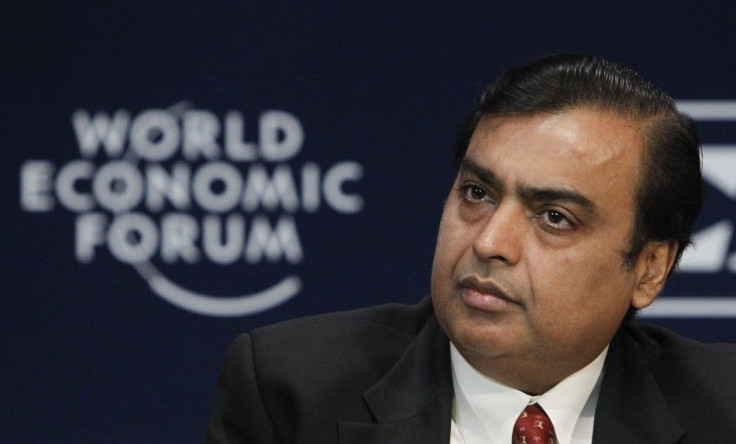Asia’s Richest Man Mukesh Ambani Added $17 Billion To His Fortune This Year

KEY POINTS
- Mukesh Ambani has a net worth of about $62 billion
- Ambani has vowed to cut Reliance's net debt to zero by early 2021
- Ambani's plan to sell a 20% stake in its refining and petrochemical business to Aramco has been blocked by the Indian government
The wealthiest man in Asia, Indian tycoon Mukesh Ambani, added about $17 billion to his net worth in 2019, pushing up his total fortune to $61 billion, the Bloomberg Billionaires Index indicates.
Ambani’s wealth was pumped up by a nearly 40% surge in the stock of his energy conglomerate Reliance Industries Ltd. Reliance is an investor favorite in India as it diversifies into telecommunications, e-commerce and retail businesses.
Since the end of 2016, Reliance shares have nearly tripled in value.
Ambani, chairman and managing director of Reliance, told shareholders in August that the company’s newer businesses will account for 50% of its total earnings in a few years, up from about 32% currently.
“Mukesh Ambani changed the narrative for Reliance Industries” said Chakri Lokapriya, chief investment officer at TCG Asset Management in Mumbai. “He successfully identified, invested and executed rapidly to create this new narrative. We believe this can potentially double shareholder value over the next four years.”
Ambani has also committed himself to reduce the company’s net debt to zero by early 2021 partly through a series of sales of strategic assets – a decision also hailed by investors. Reliance had a net debt of 1.54 trillion rupees ($21.6 billion) at the end of March 31.
Ambani also has formed a highly successful mobile phone unit, Reliance Jio Infocomm Ltd., with more than 350 million users.
“Ambani created value in Jio, which he deleveraged by hiving off his infrastructure assets to [Canadian investor] Brookfield,” said Sandeep Gupta, managing director of Protiviti India. “He can further deleverage the company from a debt point of view by bringing in strategic investors, which will raise the value further.”
Reliance plays a crucial role in India’s economy –it is India's single largest exporter and accounts for 9.8% of India's total merchandise exports. It is also the biggest payer of income tax in the private sector.
However, Ambani received some unwelcome news earlier this month when the Indian government filed a petition in the Delhi High Court to block Reliance from selling a 20% stake in its refining and petrochemicals business to Saudi Aramco for $15 billion.
The government alleged Reliance and its partner British Gas, which is now owned by Royal Dutch Shell (RDS-A), failed to make arbitration award payments totaling $3.5 billion in connection with production sharing contracts linked to the Panna-Mukta and Tapti oil and gas fields in western India.
In response, Reliance said the government’s plea represented “an abuse of process” and that it was a “falsehood to say that the arbitration tribunal had passed an award requiring the company and its partners to pay $3.5 billion to the government.”
Reliance’s proposed asset sale to Aramco formed the cornerstone of the company’s strategy to reduce its debt.
“The fact that the court order will put some uncertainty over [Reliance]’s proposed deal with Saudi Aramco is only incidental as it may have come out anywhere in the due diligence process by the Saudi oil company,” said Tsunduru Muradidhar, an independent petroleum sector consultant. “Ultimately, it will depend on what are Saudi Aramco’s long-term interest and plans in the Indian market.”
© Copyright IBTimes 2025. All rights reserved.





















